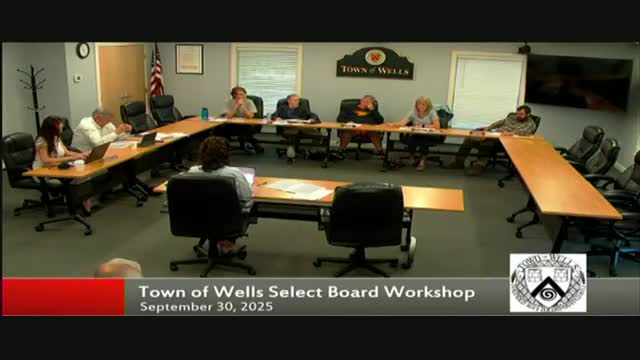Local Council Discusses Short Term Rental Caps in Tourist and Rural Zones
October 01, 2025 | Select Board , Wells, York County, Maine
This article was created by AI summarizing key points discussed. AI makes mistakes, so for full details and context, please refer to the video of the full meeting. Please report any errors so we can fix them. Report an error »

In a recent workshop held by the Wells Select Board, discussions centered around the future of short-term rentals in the town, particularly in tourist zones. As the sun dipped below the horizon, board members gathered to deliberate on the implications of potential caps on rental properties, a topic that has sparked considerable debate among residents and stakeholders.
The meeting revealed a consensus against imposing caps on short-term rentals in tourist areas, with board members expressing concerns that such limitations could drive rental opportunities away from these prime locations. One member emphasized the importance of maintaining an open market, stating, “If we start putting caps on the tourist zone, we're gonna push all the Airbnbs.” This sentiment resonated with others, who argued that restricting rentals could devalue properties and limit income potential for homeowners.
The conversation shifted to the rural zones, where the board considered whether to implement caps. Some members voiced apprehension that capping rentals could create disparities in property values, particularly for those in areas where short-term rentals are already limited. “Caps create a false value for those who have it and those who don’t,” one member noted, highlighting the potential for inequity in property assessments.
A significant point of contention arose regarding the licensing of short-term rentals. The board discussed whether licenses should transfer with property ownership or expire upon sale. This decision could significantly impact property values, as potential buyers might be deterred if they cannot guarantee the same rental income as previous owners. “You’re taking away a use that they have, and now you’re telling them if they sell it, you don’t have that use anymore,” one member argued, emphasizing the potential financial repercussions for sellers.
As the meeting progressed, the board recognized the need for clarity in the licensing process, suggesting that licenses could be renewed periodically, thus allowing for flexibility in the market. However, the implications of these decisions remain complex, as they intertwine with property values and community dynamics.
The workshop concluded with a commitment to further explore these issues, as board members acknowledged the delicate balance between fostering a vibrant tourism economy and protecting the interests of local residents. As Wells navigates the future of short-term rentals, the discussions from this workshop will undoubtedly shape the town's approach to managing its unique blend of residential and tourist needs.
The meeting revealed a consensus against imposing caps on short-term rentals in tourist areas, with board members expressing concerns that such limitations could drive rental opportunities away from these prime locations. One member emphasized the importance of maintaining an open market, stating, “If we start putting caps on the tourist zone, we're gonna push all the Airbnbs.” This sentiment resonated with others, who argued that restricting rentals could devalue properties and limit income potential for homeowners.
The conversation shifted to the rural zones, where the board considered whether to implement caps. Some members voiced apprehension that capping rentals could create disparities in property values, particularly for those in areas where short-term rentals are already limited. “Caps create a false value for those who have it and those who don’t,” one member noted, highlighting the potential for inequity in property assessments.
A significant point of contention arose regarding the licensing of short-term rentals. The board discussed whether licenses should transfer with property ownership or expire upon sale. This decision could significantly impact property values, as potential buyers might be deterred if they cannot guarantee the same rental income as previous owners. “You’re taking away a use that they have, and now you’re telling them if they sell it, you don’t have that use anymore,” one member argued, emphasizing the potential financial repercussions for sellers.
As the meeting progressed, the board recognized the need for clarity in the licensing process, suggesting that licenses could be renewed periodically, thus allowing for flexibility in the market. However, the implications of these decisions remain complex, as they intertwine with property values and community dynamics.
The workshop concluded with a commitment to further explore these issues, as board members acknowledged the delicate balance between fostering a vibrant tourism economy and protecting the interests of local residents. As Wells navigates the future of short-term rentals, the discussions from this workshop will undoubtedly shape the town's approach to managing its unique blend of residential and tourist needs.
View full meeting
This article is based on a recent meeting—watch the full video and explore the complete transcript for deeper insights into the discussion.
View full meeting
